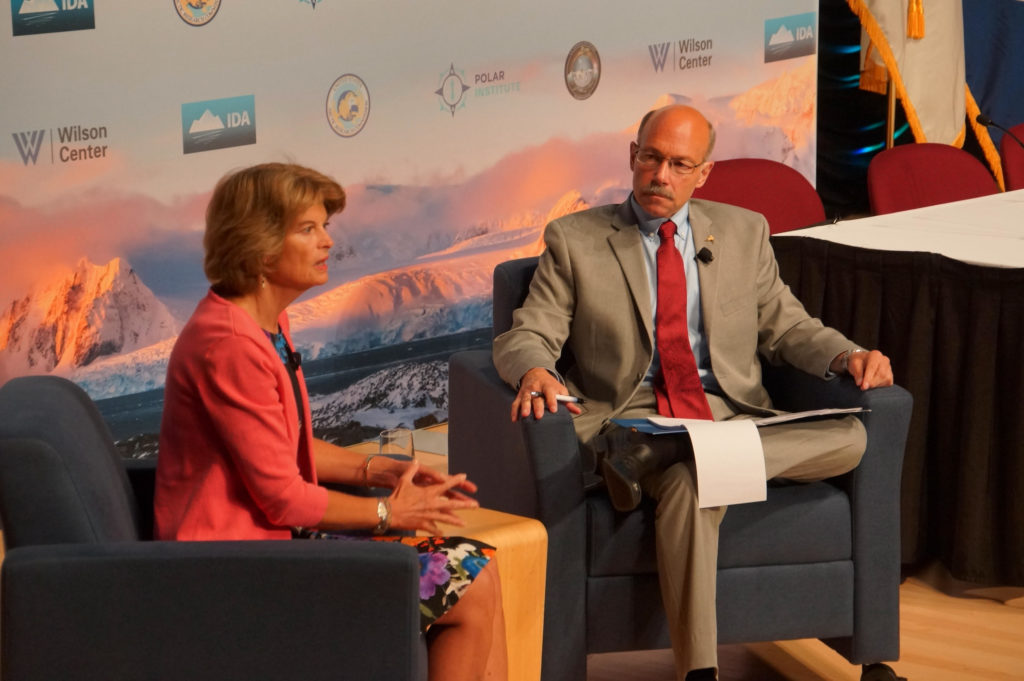Biden appoints new U.S. Arctic research, leadership officials in science-based approach
New appointments to the U.S. Arctic Research Commission and the Arctic Executive Steering Committee signal a science-based approach to the Arctic.

The White House on Friday announced several key new Arctic appointments, including five new research commissioners and two new leaders of a revived leadership committee.
President Biden announced five new commissioners and one reappointed commissioner to the U.S. Arctic Research Commission. The news follows a surprising shakeup three weeks ago, when several commissioners were asked to resign by the White House — an unprecedented move in the commission’s history.
The Biden administration is also reactivating the Arctic Executive Steering Committee, which works on U.S. Arctic interests and federal action in the North.
The Biden administration is “protecting and advancing United States’ interests in the Arctic region by reactivating a critical steering committee and adding a slate of dedicated Arctic experts to its team,” the White House Office of Science and Technology Policy said in a statement.
The appointments signal a higher priority for science in U.S. Arctic policy, especially given the challenges and opportunities presented by a changing climate.
The new officials also plan to address issues around economic development, infrastructure, shipping, tourism, sustainability and food security in U.S. policy.
The new chair of USARC is Mike Sfraga, previously the director of the Wilson Center’s Polar Institute, where he will continue to serve as a senior leader.
Sfraga was at home in Fairbanks when the White House called offering the position, he told ArcticToday, and after it was finished, he hung up and stared out at the Alaska range. “This is where I live,” he said. “These are not jobs to me, these are missions. How do you say no when the nation calls to focus on the Arctic and Alaska?”
The announcements on Friday show “an elevated interest and direction for this administration in the Arctic,” Sfraga said.
Identifying Arctic research priorities is “a very important responsibility,” he said, “to get this right, to make sure that our work informs and complements the work being done throughout our federal government.”
Elizabeth Qaulluq Cravalho, the vice president of lands at the NANA Regional Corporation, and Mark Myers — who served as director of the U.S. Geological Survey under President George W. Bush and later helped craft Alaska Governor Sarah Palin’s Alaska Gasline Inducement Act — will serve as the two USARC representatives from private industry.
Jacqueline Richter-Menge, a sea ice researcher who was previously appointed to the commission in 2016 by President Obama, will serve as a research representative.
Deborah Vo, a program officer at the Rasmuson Foundation and a former special assistant for rural affairs to Senator Lisa Murkowski, will serve as the Indigenous representative.
David Kennedy was reappointed to a second term on the commission, but not as chair, because he originally accepted that role on an interim basis, USARC said in a statement.
Earlier this month, Maj. Gen. Randy “Church” Kee resigned from the commission to become senior advisor of Arctic security affairs at the new Ted Stevens Center for Security Studies. His successor at USARC has not yet been appointed by the White House.
The appointments reflect a significant shift in the commission: One-third of the current commissioners are now Indigenous, half are women, and two-thirds live in Alaska.
Dr. Sethuraman Panchanathan, the director of the National Science Foundation, remains a member in a non-voting capacity.
The Biden administration also announced that David Balton will become the executive director of the Arctic Executive Steering Committee.
Balton is a former U.S. ambassador for oceans and fisheries, where he was instrumental in negotiating a landmark moratorium on fishing in the high Arctic Ocean. He also led the Senior Arctic Officials group during the U.S. chairship of the Arctic Council from 2015-2017, and has since served as a fellow at the Wilson Center’s Polar Institute. Raychelle Alauq Daniel, a Yup’ik researcher from Tuntutuliak, Alaska, who previously worked at Pew Charitable Trusts on efforts linking Indigenous knowledge and science, will serve as the committee’s deputy director.
The steering committee was first established by the Obama administration, but was functionally dormant under Trump.
“We’re hoping to use it to coordinate federal policy on the full range of Arctic issues,” Balton told ArcticToday. “That’s the vision.”
The steering committee will oversee the Northern Bering Sea Climate Resilience Area and the Northern Bering Sea Task Force and Tribal Advisory Council. It’s an effort to collaborate with partners in the region, especially Alaska Native communities.
“We’re talking about a range of issues that very much affects the people of the region,” Balton said. He pointed to existing models of work from organizations like the Arctic Council bringing together different scientific traditions, including Indigenous knowledge.
“This administration does believe in science-based solutions,” Balton said. “Science in this context means a marriage of science and Indigenous knowledge.”
The new leaders of the commission and the committee “understand the critical role the Arctic region plays in our nation’s future security and prosperity,” Jane Lubchenco, OSTP deputy director for climate and environment, said in a statement. “Whether working to address the climate crisis, implementing policy to keep the region secure, consulting with Indigenous communities, or growing U.S. partnerships in the Arctic, there is no better team to lead this effort.”
“We have an ocean opening before our very eyes,” Sfraga said. “What does this mean — for challenges and some significant opportunities?”
“The consequences of global Arctic ripple all over the world,” he said. “So it’s very refreshing to see the United States leaning forward like this.”